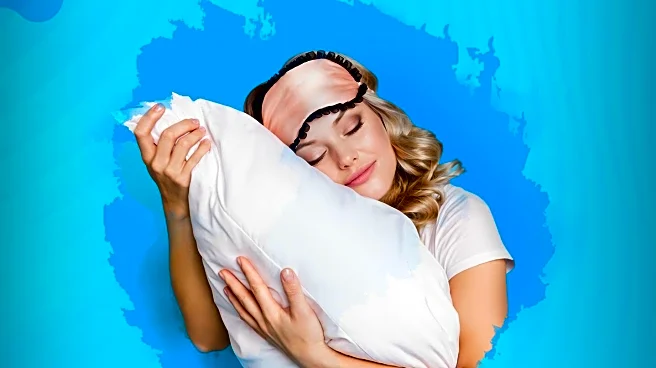What's Happening?
CNET has introduced a new sleep routine called the 10-3-2-1-0 sleep hack, designed to help individuals improve their sleep quality without purchasing new products. The routine involves a series of steps
to be followed before bedtime: stopping caffeine intake 10 hours before bed, avoiding food and alcohol 3 hours before, ceasing work 2 hours before, eliminating screen time 1 hour before, and avoiding hitting the snooze button in the morning. This method aims to prepare the mind and body for restful sleep, addressing common issues such as disrupted sleep cycles and poor sleep quality.
Why It's Important?
The 10-3-2-1-0 sleep hack offers a practical solution for improving sleep quality, which is crucial for overall health and well-being. Poor sleep is linked to various health issues, including high blood pressure and heart disease, and can affect mood, productivity, and stress levels. By providing a structured routine, CNET's approach encourages individuals to adopt healthier sleep habits, potentially reducing the need for sleep aids and improving daily functioning. This initiative highlights the importance of lifestyle changes in addressing sleep-related problems.
What's Next?
As more individuals adopt the 10-3-2-1-0 sleep hack, there may be increased interest in exploring other non-pharmaceutical methods for improving sleep quality. Sleep experts and health professionals might further investigate the effectiveness of this routine and consider incorporating similar strategies into broader sleep hygiene recommendations. Additionally, public awareness campaigns could promote the benefits of healthy sleep habits, encouraging individuals to prioritize sleep as a key component of their overall health.
Beyond the Headlines
The introduction of the 10-3-2-1-0 sleep hack reflects a growing trend towards non-invasive, lifestyle-based solutions for health issues. It underscores the potential for simple behavioral changes to have significant impacts on health, challenging the notion that solutions must involve costly products or medications. This approach may also contribute to a broader cultural shift towards valuing sleep and recognizing its role in maintaining physical and mental health.









